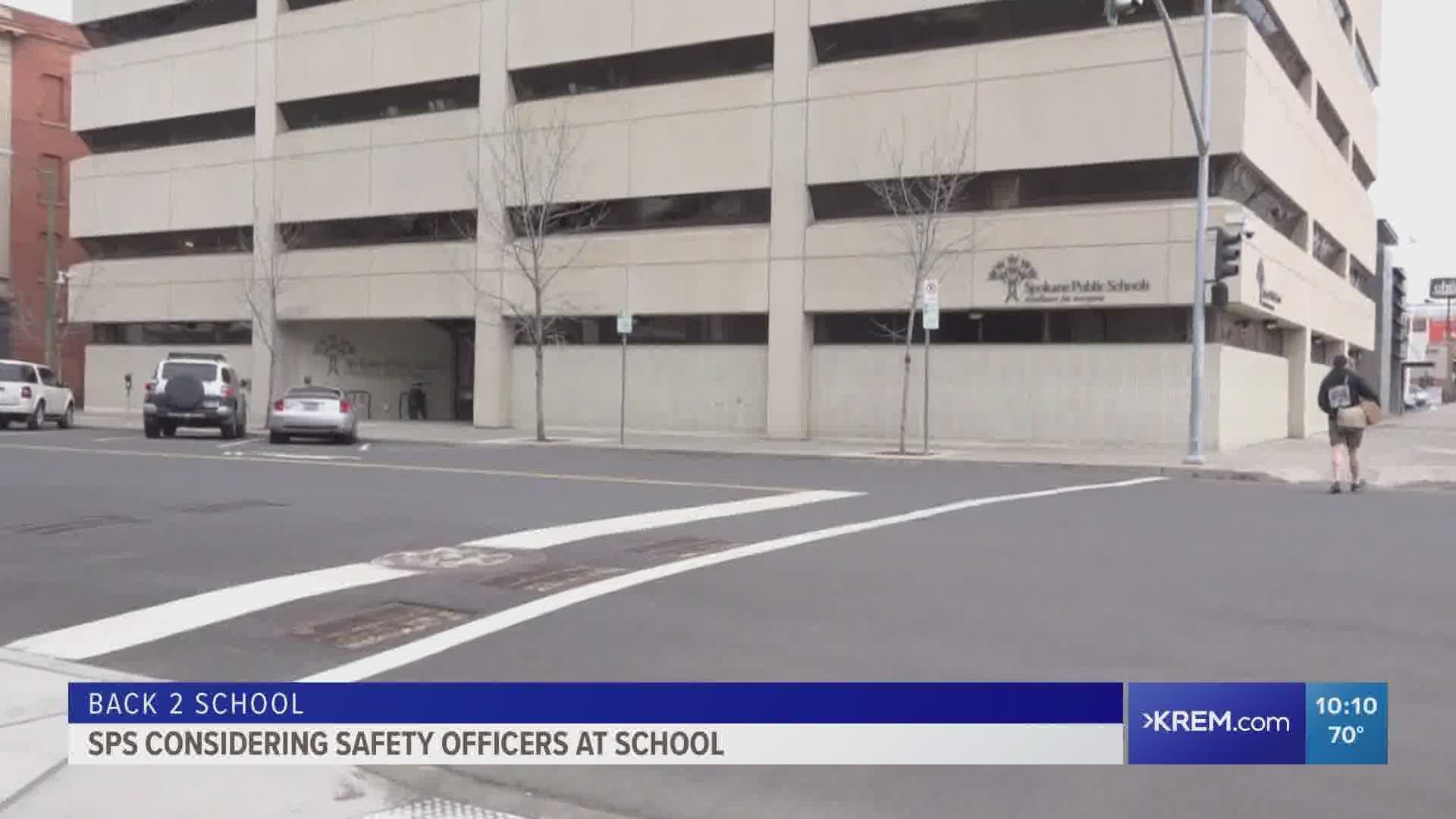SPOKANE, Wash — Spokane Public Schools is planning an overhaul for how the district handles safety, one that redefines the role of campus security.
In the new plan, Campus Resource Officers will be eliminated and replaced with a new position, Safety and Wellness Specialists. The aim to is shift the focus of the job away from arrests and investigations and towards preventing violence and crime in the first place.
As it stands, CROs are not cops; they are hired directly by the district. But they do have commissions with the Spokane Police Department, meaning they can arrest students, take them to jail, investigate crimes, and file reports directly to SPD.
But some argue that role adds an element of aggression to schools and connects them too directly to the criminal justice system. They feel the presence of commissioned officers on campus results in students, especially students of color, being more likely to get sucked into that system, even when less harmful solutions may be available.
The debate came to a head in early 2019 after a CRO was criticized for his use of force during a fight that broke out at Ferris High School. And it returned this summer during the weeks of demonstrations against racial injustice. The school board responded via a resolution committing to achieving racial equity in a variety of ways, including by ending the practice of any school employees arresting students.
RELATED: Former Ferris resource officer Shawn Audie committed four acts of misconduct as deputy, records say
District administration is now taking further initiative with its holistic redesign of the safety model.
There will be twelve Safety and Wellness Specialists, the same number as there currently are CROs. Current CROs may be retained as specialists. In a webinar conducted on Tuesday, that fact raised the question: Other than the title, how are these positions really different?
"They won't have the Spokane police commission, so they won't have attributes of law enforcement," said Shawn Jordan, one of the district's administrators. "They won't be wearing a uniform is the direction we're thinking about. They won't be able to arrest students, that's probably the biggest thing."
Specialists will also be instructed to remain active on campus during school hours, rather than spending time away from students conducting investigations, or even away from campus taking arrested students to jail.
The proposal has raised serious concern from many students, staff, and families, primarily wondering: without CROs, who will respond to acts of violence on campus?
Jordan indicated that a multi-pronged strategy would be developed, where various staff are trained in restraint techniques, de-escalation, and to know when it's time to call 911.
"We do restraint training for staff. Administrators receive that training. I would think in our process of developing this position, that would be a training that these individuals would also experience," he said. "When they have to restrain a student, it's obviously not at all the first step that we want to take. Deescalation training is always a part of that."
There's still a ways to go before the overhaul can take effect. In the meantime, CROs will stay in their current roles.
SPS will host another webinar at noon on August 28.

